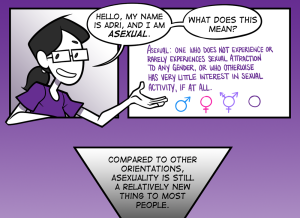
Source: PixGood
Originally published on Mic and cross-posted here with their permission.
Last year, Long Island teenager Kwasi Enin captured national headlines after becoming part of an impressive club: high school seniors who have been accepted into all eight Ivy League schools.
However, while many celebrated Enin’s achievement, a bitter minority griped that the teenager had somehow gamed the system. The racial subtext was obvious: Enin couldn’t have actually have gotten into all those schools by himself.
Why?
Well, because he’s black.
This type of harmful and wholly inaccurate narrative has been constructed around black male student achievement for years.
Enin is just the latest high-profile example of how it hurts all young men, high school high achievers or not, by implying that the majority of black boys are hopelessly behind and may never be able to narrow the achievement gap.
There are, of course, legitimate issues that black male students face due to a confluence of factors.
But even data that show the more dire aspects of black male achievement do not exist in a vacuum, with researchers misrepresenting or not calculating for the experiences of black male students.
The good news is that bright spots like Enin may help raise the profile of America’s black young men. However, there is a lot of work to be done, beginning with rethinking the way we use these seven common “facts.”
1. There Are More Black Men in Prison Than College
Black men are grossly overrepresented in the penal system; however, there are more black males in college than in prison, as of 2011.
Howard University professor Ivory A. Toldson found in his research that there are about 600,000 more black males enrolled in higher education than are in jail.
This myth has been used by education experts, the media, and even the president, despite the fact that over the last decade, black boys have largely avoided the “school-to-prison” pipeline.
2. Black Men Believe Academic Achievement Means They’re ‘Acting White’
Black males are not anti-intellectual. In fact, researchers have shown that black boys show more positive feelings toward school than do their white counterparts.
University of North Carolina professor Roslyn Arlin Mickelson found, “Many black youth and adults express a high regard for education” and that there are a multitude of factors that shape black students’ educational attitudes.
3. Less Than 50% of Black Males Graduate from High School
The high school dropout rate for black males has actually hit a historic low.
According to a 2013 Education Week study, about 62% of African-Americans completed high school in 2010 (the most recent year for which the necessary data was available), compared to 80% of white students. The increase represents a 30% narrowing of the gap between black and white high school students.
Indeed, black males are graduating at historic levels. According to the Schott Foundation for Public Education, “In 2009-10, the national graduation rate for black male students was 52%.
“The graduation rate for white, non-Latino males was 78%. This is the first year that more than half of the nation’s black males in 9th grade graduated with regular diplomas four years later.”
At the same time, overall high school dropout rates have fallen steadily since 1990, and there is no indication that the rates won’t continue to fall, given the trend over the past two decades.
4. Black Males Don’t Go to College
According to the National Center for Education Statistics, from 1976 to 2010, “the percentage of black students [enrolled in college] rose from 9% to 14%. During the same period, the percentage of white students fell from 83% to 61%.”
The Congressional Black Caucus report “Challenge the Status Quo,” meanwhile, found that there are 12.5 million black adult males living in America,who make up 5.5% of the total population, and 5.5% of the students on college campuses across America are black male students.
The percentage of black male students enrolled in college is proportional to the 5.5% of black men college-age or above living in the US today.
5. Black Student-Athletes Graduate at Higher Rates Than Their Non-Athlete Black Peers
Often college coaches boast about how teamwork and sportsmanship translate to academic success.
However, according to a University of Pennsylvania report on black male student-athletes in NCAA Division I college sports, 50.2% of African-American male student-athletes graduate within six years, compared to 55.5% of black undergraduate students overall.
And the disparity is even larger if black male student-athletes are compared to other student athletes: 66.9% of overall student-athletes graduate within the same six-year period, representing an 11.4% gap between black student-athletes and their teammates.
6. Black Male Students Have the Same Opportunities as Their Peers
This is an important one, part of the narrative that allows casual racism like the kind experienced by Kwasi Enin.
In fact, a recent US Education Department’s 2011-2012 Civil Rights Data Collection survey noted that the American school system treats black boys unfairly.
Black male students receive a disproportionate number of suspensions, detentions, and call-outs, and have a much higher rate of being expelled from school. In addition, schools attended by black males have less access to experienced teachers and advanced placement classes, according to the survey.
At the same time, the Casey Foundation recently found that black students face the highest barriers to opportunities.
The foundation’s researchers measured success toward 12 benchmarks, including literacy proficiency, rates of employment, income, and several other factors.
The report concluded that African-Americans, when compared to other racial groups using these benchmarks, fare the worst due to disparities they face from birth.
7. Black Male Students Are Underachievers
Coded language and misused statistics have constructed this idea that black male students are underachievers.
But ignoring the fact that some of America’s brightest minds are African-Americans, recent research shows that a lack of critical feedback and demonstrated high expectations is stifling black confidence in the classroom.
In three double-blind randomized field experiments, researchers at the University of Texas found that black students improved their grades after having the assignment expectation reinforced by their teachers.
These results point out that a cycle of mistrust and lower expectations is a likely culprit in cases of black underperformance.
[do_widget id=”text-101″]
Antwaun Sargent is a columnist for PolicyMic focusing on race, education, and pop culture. His writing has appeared in The Chicago Tribune, Complex Magazine, BuzzFeed.com, and HuffingtonPost.com. You can follow him on Twitter @Sirsargent.
Search our 3000+ articles!
Read our articles about:
Our online racial justice training
Used by hundreds of universities, non-profits, and businesses.
Click to learn more




















